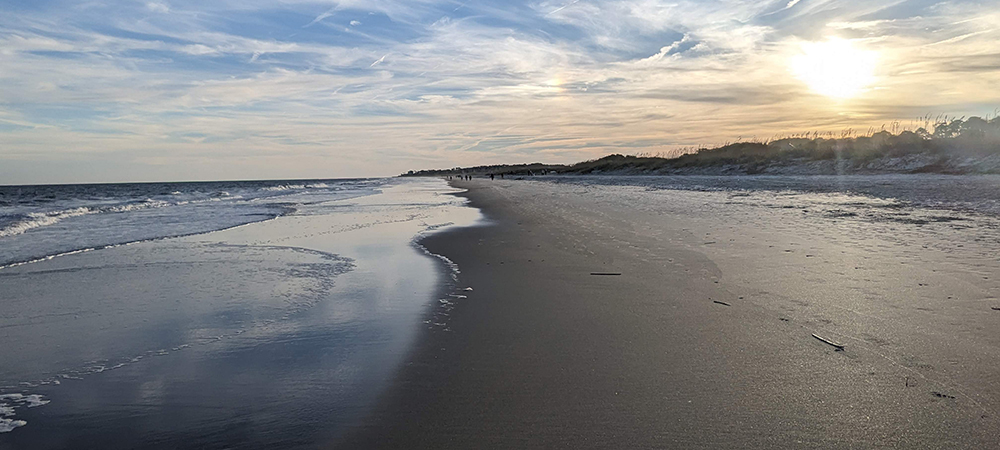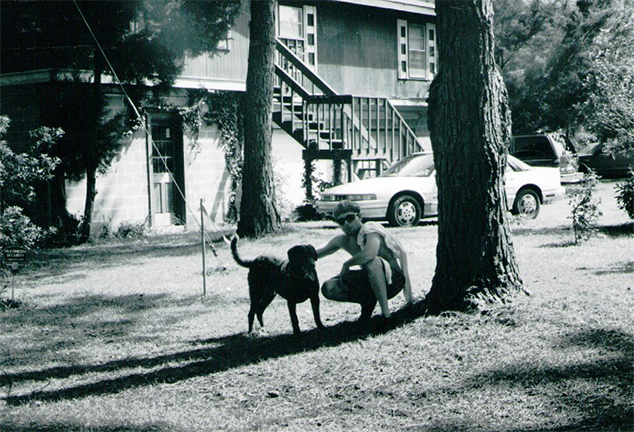
Burkes Beach – the surfer’s favorite beach is named after a local Gullah family

I discovered Burkes Beach when I came to Hilton Head to visit my folks – who had retired here in the early 1990’s. They moved to Hilton Head Plantation, and like most retirees were drawn to the relative security (compared to Washington D.C.). While I enjoyed their new home, I was more drawn to the parts of the island that were less restrictive (and more affordable). While I knew little about the local Gullah community or culture; I was far more interested in the areas that were referred to as ‘off-plantation’.
While the term ‘plantation’ is a historical reference to actual slave plantations; to me ‘off-plantation’ was (and is) a positive reference, for the same reason. Where the plantations of today are about control, and rigid obedience; off-plantation is more free, laid back, and non-pretentious in every way. I did not have the kind of money to live inside a gated-community – but neither was I compelled to live there. I’m not a big fan of uniformity, rules and regulations. Life is full of those already. Besides, I’m not sure what they are protecting themselves from here on Hilton Head? Having come from the Metropolis of Northern Virginia, Hilton Head seemed incredibly tame; whether one lived behind a gate or not.
The sad irony is that the community I fell in love with was once within an actual 400 acre slave plantation, that spanned from Mathews/Folly Field Road all the way to Palmetto Dunes (Chaplin’s Plantation). That plantation’s history stretched from 1820 until 1861, until the ‘Battle of Port Royal’ and the swift departure of Confederate troops. 150 former plantation slaves managed to remain on the island (and the numbers grew as more found there way to the renamed union Fort Welles (formerly Fort Walker). The plantation lands were lost to ‘federal confiscation‘, including nearby planation named Drayton, which became a community of freed former slaves called ‘Mitchelville‘. It was not long after this when many of the local Hilton Head families acquired parcels of land, which were subdivided and passed to family heirs or friends year after year – often in exchange for only ‘love and affection’.
Burkes Beach was named for the family that owned much of the land in that area – including most of the oceanfront acreage between Burkes Beach Road and Bradley Circle (Bradley Circle was originally Driessen family land). Within their 25 acres of oceanfront sea pines and oak trees was the family house and a social club they managed called ‘The HideAway’. It was a place to hide away, where one would have to travel on dirt roads thru the woods to find it. I was fortunate enough to find it, and it changed my life. Not only was I able to find property for sale which I could actually afford, but I met friendly people and eventually became a local. Since then, I have watched as others have come (Com’yahs in Gullah – as opposed to ‘Bin’yahs’); including the Marriott Corporation – who purchased the Burke’s tract in 2001.
I have gratefully accepted what has been kindly shared with me, and made it part of my life (more than anything else is a slower approach to life – and an acceptance of people and things as they are). I care deeply about this place, which has always been here for me. A peaceful HideAway, no matter what else is happening in the world. Everyone loves the beach for a reason. I know I am lucky to have lived here. I am grateful to the Burkes, and to all of the locals who have shared this place that their families call home.
